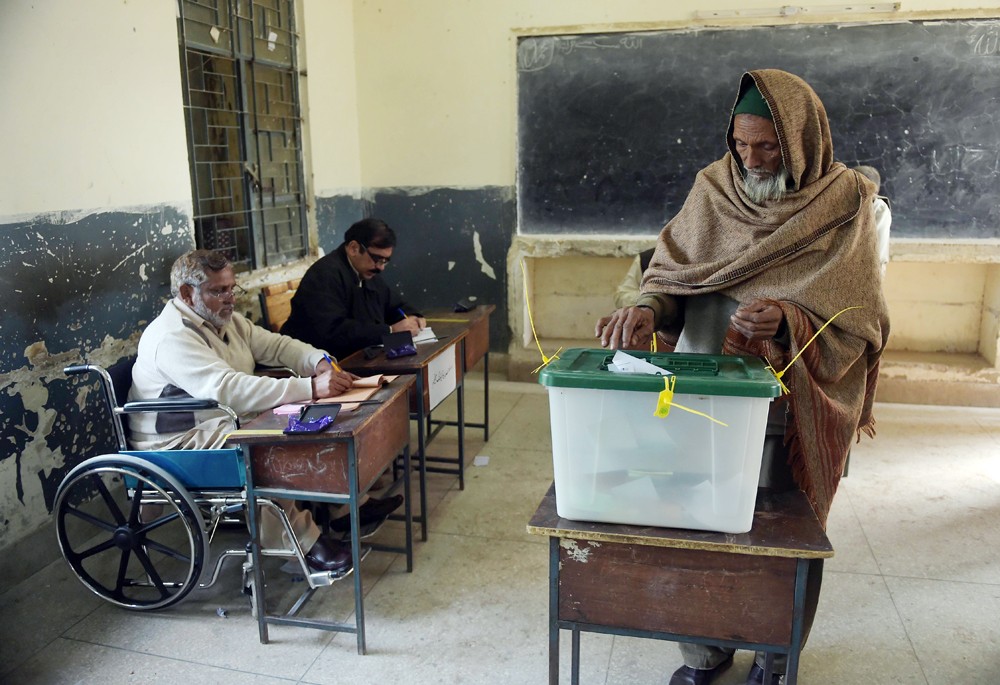
Despite tight security and low voter turnout, last week’s local bodies polls in Islamabad mark a new beginning

Last Monday, the first ever local bodies polls were held in the capital, almost 53 years after its relocation, amid tight security and low voter turnout.
Out of 50 union councils, the PML-N bagged 19 while PTI secured 17 seats. Independent candidates secured the third position with 12 seats, while the results of two union councils are still pending. In UC-4, the winner will be decided by a toss as the vote count ended in a tie between the candidates.
The voter turnout was remarkably low, so much so that in many union councils the entrants secured only 1,000 or less to register a win. Like, in UC-1, the winning candidate from the PTI got 997 votes and his rival from the PML-N obtained only 670 votes. While the total number of registered votes in this UC is 8,864.
The total number of registered votes in the capital city were 6,80,612 out of which 3,67,960 were male and 3,12,652 female voters.
"This was an important moment for the capital. Previously, people had to go to the Capital Development Authority (CDA) to address local problems, civic issues and development concerns. Now, they will be able to get hold of someone from the union council to solve their problems," says Ishtiaq Ahmed, a resident of UC-25. "This is a first step. It will take time to empower these representatives. The ruling party will have to disband the CDA of authority and appoint its own mayor."
He thinks now the people will be able to hold their elected representatives responsible for their problems in respective areas. "It’s a step towards empowering the people of Islamabad."
The newly-formulated Islamabad Local Government Act, 2015 became controversial because the parliament took exceptionally long to pass it. Even now, when the elections have been held, there are legal issues to be resolved, especially those pertaining to the structure of the district government in Islamabad, says a senior CDA official, requesting not to be named. He informs that the government has formed a technical committee to resolve the legal and structural issues of the local government set up in the capital. The committee would submit its report to the PM within a period of six months.
Earlier, local bodies polls were held under the military rule in 1979 on a non-party basis and were limited to rural areas only.
Free and Fair Election Network (Fafen) also observed the irregularities and discrepancies in the procedure of holding polls because of weaker mechanisms for the enforcement of electoral laws and rules on the polling day. "Fafen observed 743 illegalities and irregularities of various nature at 148 observed polling stations, reinforcing the need for greater powers and authority required by the ECP to hold the erring officials accountable. On an average, at least five violations were reported from each polling station from where information was received on the polling day," a Fafen report on Islamabad Capital Territory local polls read.
Mudassar Rizvi, head of Fafen, says the purpose of this preliminary report is to highlight the weaknesses of electoral processes and practices.
The local bodies polls in the federal capital also indicate the PTI’s popularity in the capital territory -- where urban union councils have clearly expressed their political choice. Out of two National Assembly seats of Islamabad, one each is captured by the PML-N and the PTI.
"It does not matter who will get the seat of mayor of Islamabad. The question is: will he be empowered enough to serve the people and curtail the role of bureaucracy?" asks Hussain Iftikhar, a voter from UC-13.
Interestingly, the draft law of the Islamabad Capital Territory Local Governments Act passed by the National Assembly is under discussion in the Senate Standing Committee on Interior. The Election Commission of Pakistan held the LG polls on the orders of the Supreme Court of Pakistan.
Abid Qaiyum Suleri, Executive Director Sustainable Development Policy Institute (SDPI), terms these elections a beginning towards local empowerment. "In the current setup, the CDA deals with the urban areas of the capital and the Islamabad commissioner controls rural Islamabad. Amid these bureaucratic the clutches, new mandate of locally elected representatives needs clarity,"
"Defining the powers of the new district council will be a big challenge in future, as bureaucracy will hardly lose its control over the local development issues," says Suleri.